Past Participle Form Of Blow Past and past participle of verbs interactive worksheet / Search

Blow Past Simple, Simple Past Tense of Blow Past Participle, V1 V2 V3 Form Of Blow Blow means: move creating an air current. V1 V2 V3 Form of Blow V1 V2 V3 Blow Blew Blown Synonym Words For BLOW drive flow exhale fan flap huff inflate pant puff ruffle swell whiff flutter gasp heave pump rush stream swirl waft wave whistle breathe buffet Example Sentences with Blow, Blew, Blown V1 V2 V3 The.
Blow Verb Forms, Past Tense Of Blow Past Participle & V1 V2 V3 V4 » July 2023
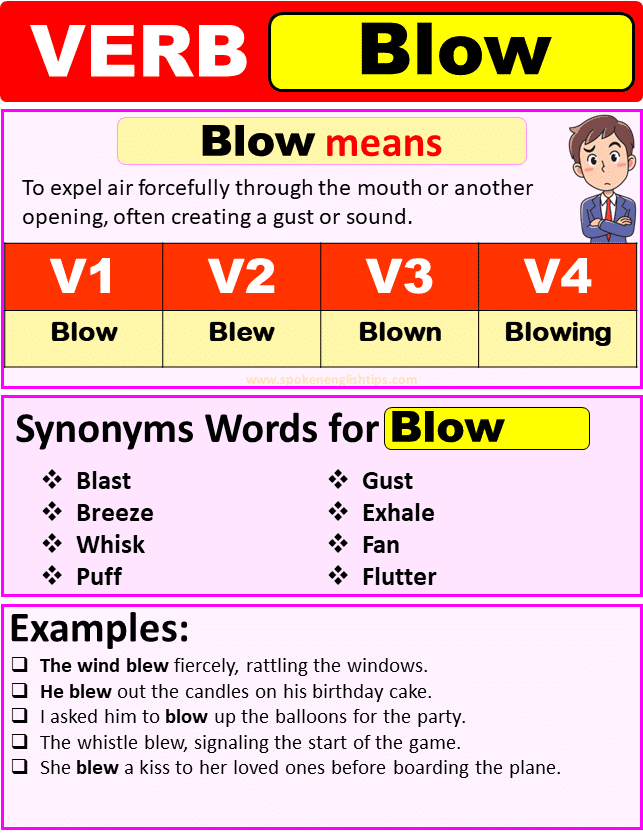
'to blow' conjugation - English verbs conjugated in all tenses with the bab.la verb conjugator. bab.la - Online dictionaries, vocabulary, conjugation, grammar.. Past participle. english. blown; More information. Full conjugation of "to blow" Translations for "to blow" Full conjugation of "to blow" Indicative. Present. I. blow. you. blow. he.
Irregular Verbs. COMMON IRREGULAR VERBS blow ??? Past Participle PastPresent Can you list these
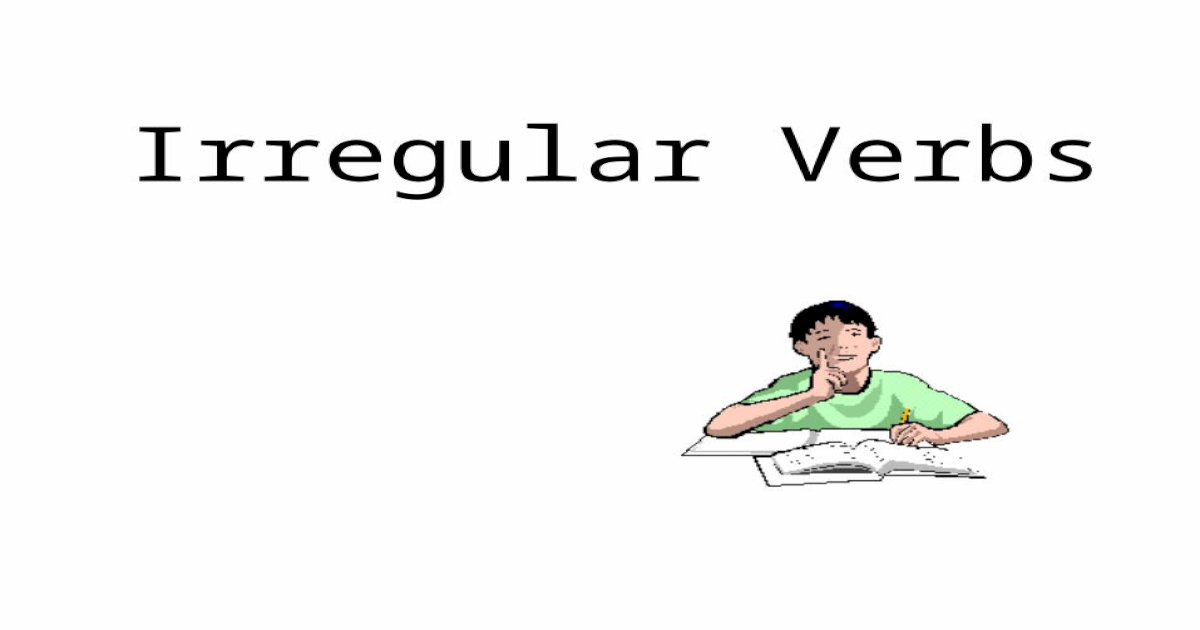
Past participle blown Model : blow Auxiliary : have, be Other forms: blow oneself / not blow Contractions Advertising Indicative Present I blow you blow he/she/it blows we blow you blow they blow Preterite I blew you blew he/she/it blew we blew you blew they blew Present continuous I am blowing you are blowing he/she/it is blowing we are blowing
Nap Past Simple, Past Participle, V1 V2 V3 Form of Nap English Vocabs

Grammar Reference Irregular Verbs List Definition: To Blow Irregular verb: To Blow Verb conjugation: Blow - Blew - Blown Meaning of 'To Blow' To move air, wind and gases Conjugation of verb 'Blow' Irregular Verbs Following a Similar Pattern Verbs like: Enjoy a seamless learning experience without interruptions from advertisements.
Blow V1 V2 V3 V4 V5 Base Form, Past Simple, Past Participle Form of Blow Englishtivi
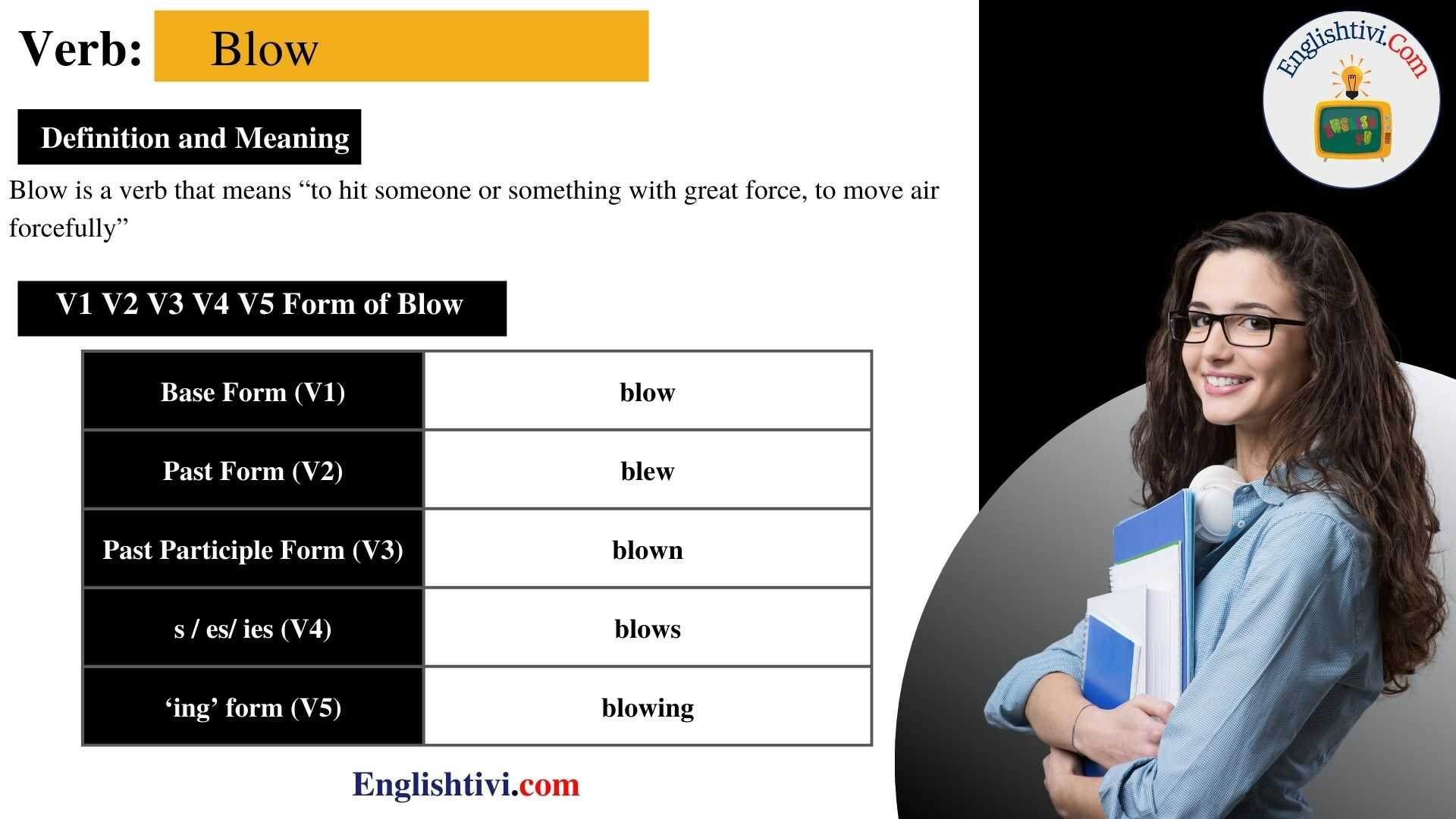
The past participle is one of the most important parts of English grammar. It's used to express perfect tenses and to form the passive voice. It's also a useful tool for writing sentences that describe actions that started in the past and are still happening today.
Blow Past Tense Verb Forms, Conjugate BLOW
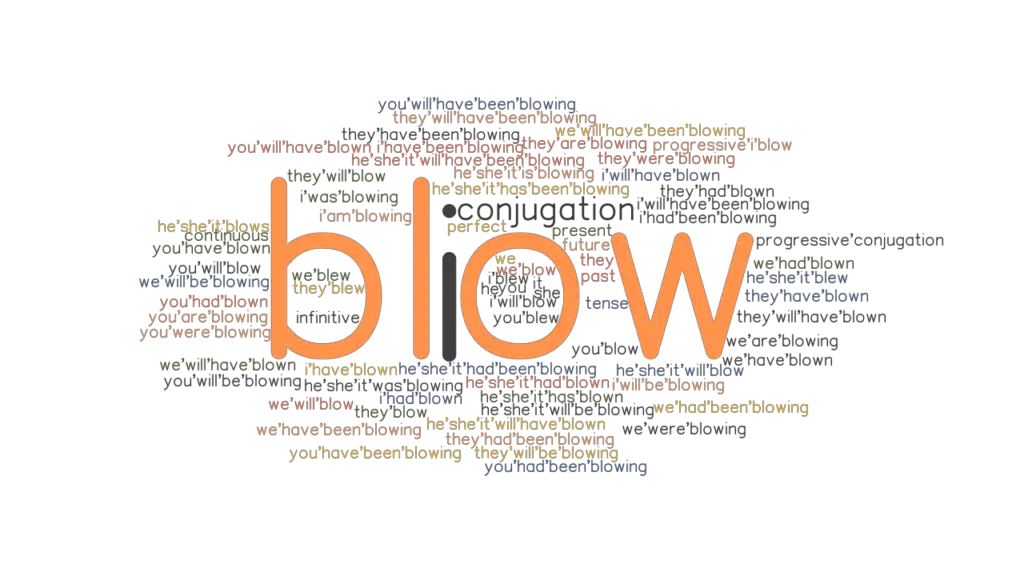
The verb "to blow" in English In English, the verb 'to blow' is irregular. Here is the full conjugation of 'blow' in the past tense, present tense, and future tense. Grammar Monster(#GM)Free Grammar Lessons and Exercises paper-free learning home search contact us about us grammar glossary adjectives adverbs conjunctions determiners interjections
Walk Past Simple, Simple Past Tense of Walk Past Participle, V1 V2 V3 Form Of Walk English
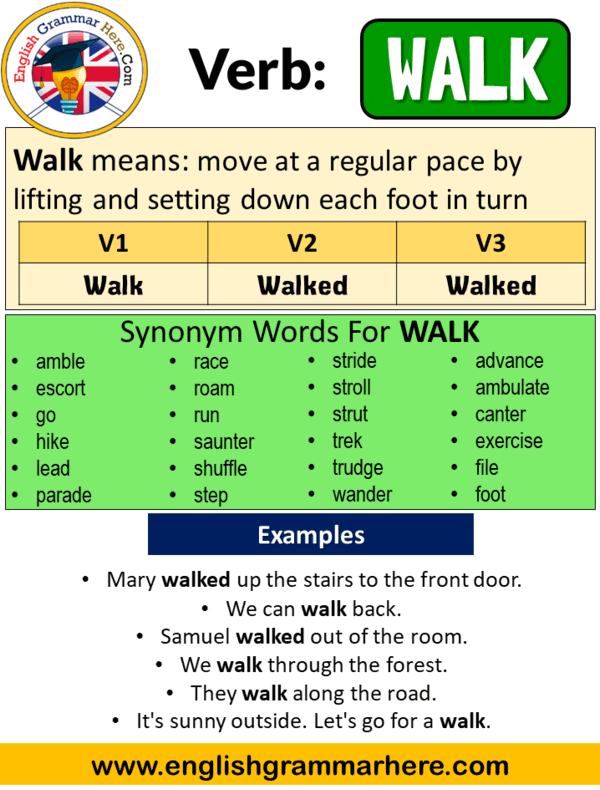
GRAMMAR The past simple and the past participle of blow Conjugation of the verb blow: Base Form/Infinitive without 'to': blow Past Simple: blew Past Partciple: blown Present Partciple: blowing Third Person Singular: blows Definition: 1. To move and make currents of air. 2. To be moved on a current of air. 3.
Blow Past Tense, V1 V2 V3 V4 V5 Form Of Blow, Past Participle Of Blow and Example Sentences

What Is The Past Participle Of Blow? The Past Tense Of Blow: Blowed Or Blew? How Do You Spell Blow? What Is The Past Tense Of Blow? As for the linguistic section, every English speaker can't overlook the basic knowledge involved in the past tense. But, it's never a simple issue to grasp all the verbs in English.
Blow Past Simple, Simple Past Tense of Blow Past Participle, V1 V2 V3 Form Of Blow English
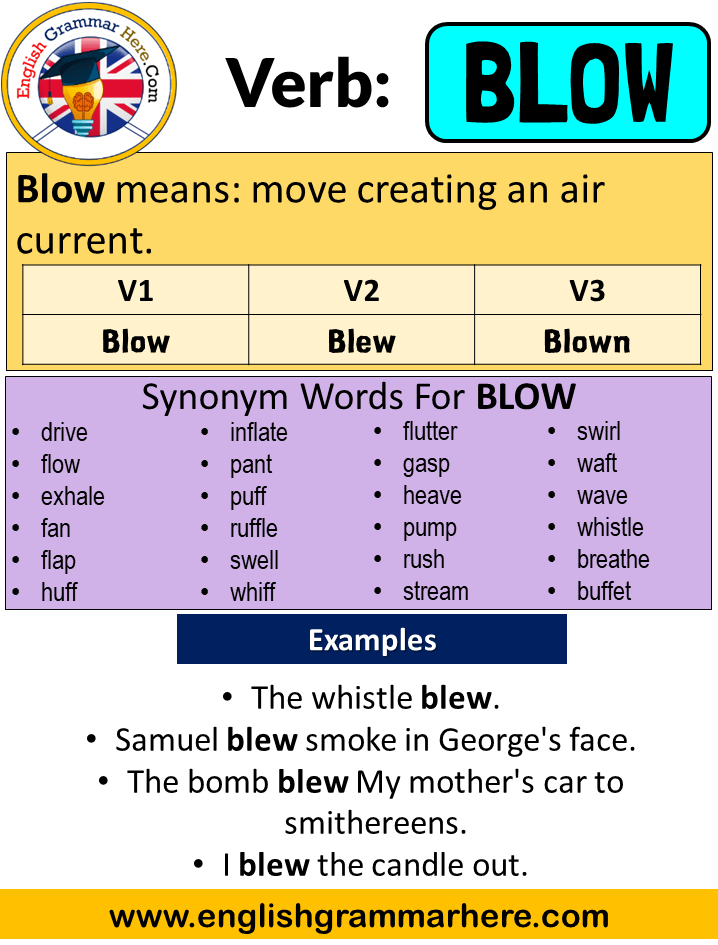
Participle of the irregular verb [blow] The past participle is one of the most important parts of English grammar. It's used to express perfect tenses and to form the passive voice.. The past participles of irregular verbs don't follow a specific pattern and can have numerous endings.
Irregular Verbs Prepared By Skorfish COMMON IRREGULAR

12 tenses of 'blow'. To blow is in the present tense: 'I need to blow my nose.'. Blew is the simple past: 'A chill wind blew at the top of the hill.'. Blown is the past participle: 'The car tires have blown out!'. Is blow a regular or irregular verb?. The verb, to blow, is irregular, since neither of its past tense forms end in -ed, as regular verb forms do.
The past tense of blow is blew. Indicative past tense participle present perfect gerund

Frequently Asked Questions Conclusion What Is "Blow"? The verb "blow" is a common English verb that refers to the act of moving air or other gases. It can be used in many different contexts, from blowing out candles on a birthday cake to blowing up a balloon or blowing a kiss.
Past Participle Of Blow / Grammar ( 2 ) CH10 L18 Using Past Participle as You should
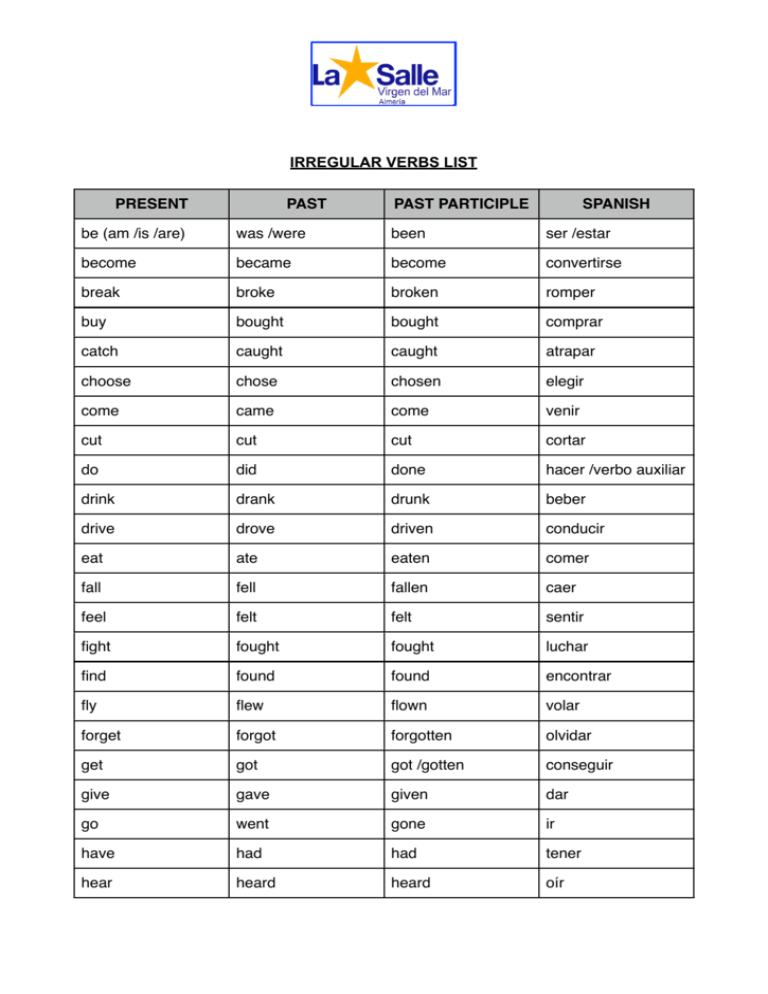
The verb "blow" operates within regular past tense constructions, requiring the speaker to decide between the words "blew" and "blown."This choice hinges on the grammatical context—whether the past tense is being used as a simple past or a past participle. Blew is the simple past tense form of "blow," and it is used to describe an action that occurred and was completed in the.
Blow Verb Forms Past Tense, Past Participle & V1V2V3 »
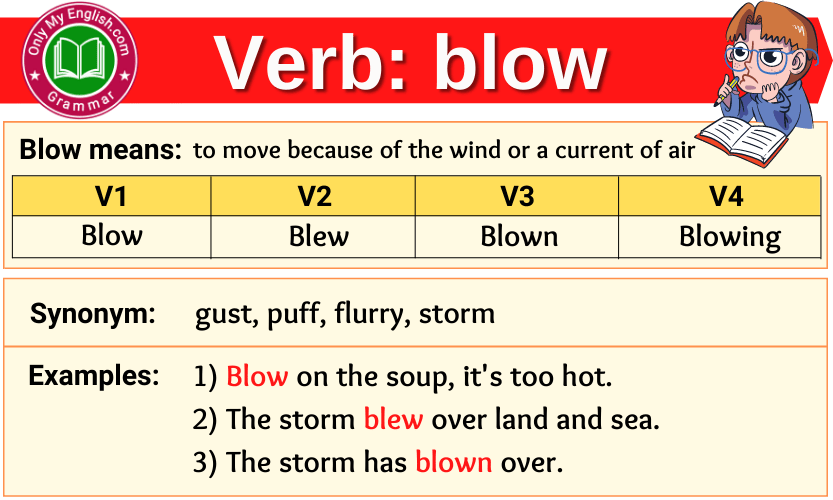
past participle: (to) blow blowing blow n definition in Spanish in French in Italian Indicative Perfect tenses Continuous (progressive) and emphatic tenses Compound continuous (progressive) tenses Conditional Imperative Subjunctive Note: One may encounter the archaic present tense forms thou blowest and s/he bloweth.
Past Tense of Blow, Past Participle of Blow, V1 V2 V3 V4 V5 Form of Blow English Study Here

blow (third-person singular simple present blows, present participle blowing, simple past blew, past participle blown) ( intransitive ) To produce an air current . c. 1603-1606 , William Shakespeare , " The Tragedie of King Lear ", in Mr. William Shakespeares Comedies, Histories, & Tragedies [.
PPT ELA PowerPoint Presentation, free download ID2166993

Try the eBay way-getting what you want doesn't have to be a splurge. Browse The blow! Find the deal you deserve on eBay. Discover discounts from sellers across the globe.
Past Tense of Blow, Past Participle Form of Blow, Blow V1 V2 V3 forms of verb pdf English
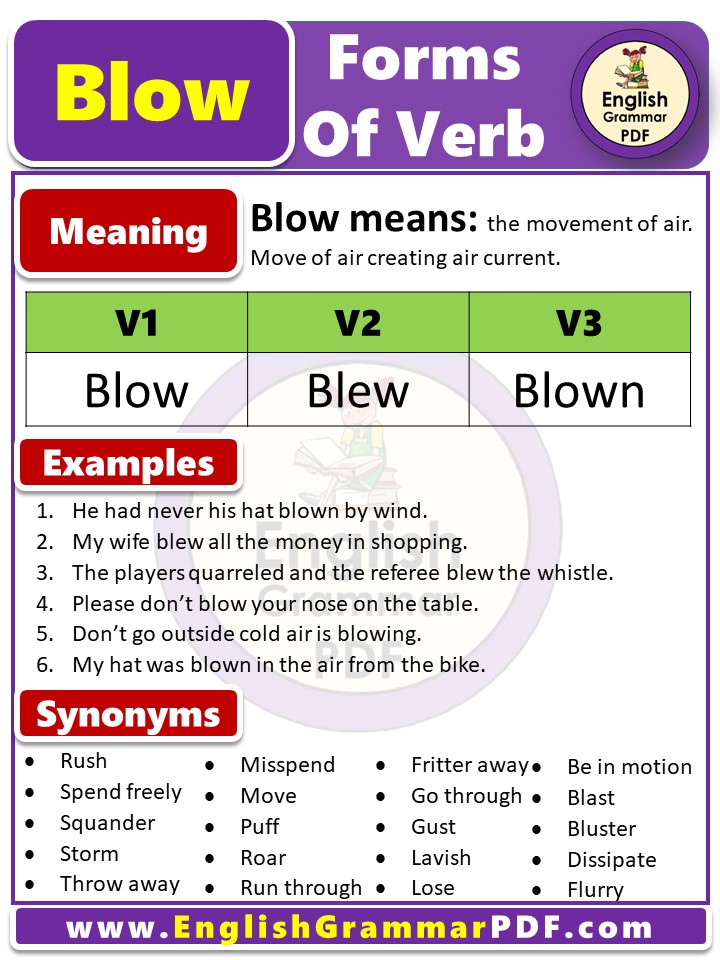
The past tense (past participle) form of "blow" is "blew." The infinitive of the word form is "blow." The present participle form is "blowing." The past tense form is "blew" and past participle form is "blown." Understanding verb tenses The general grammar rules that govern past tenses are as follows.